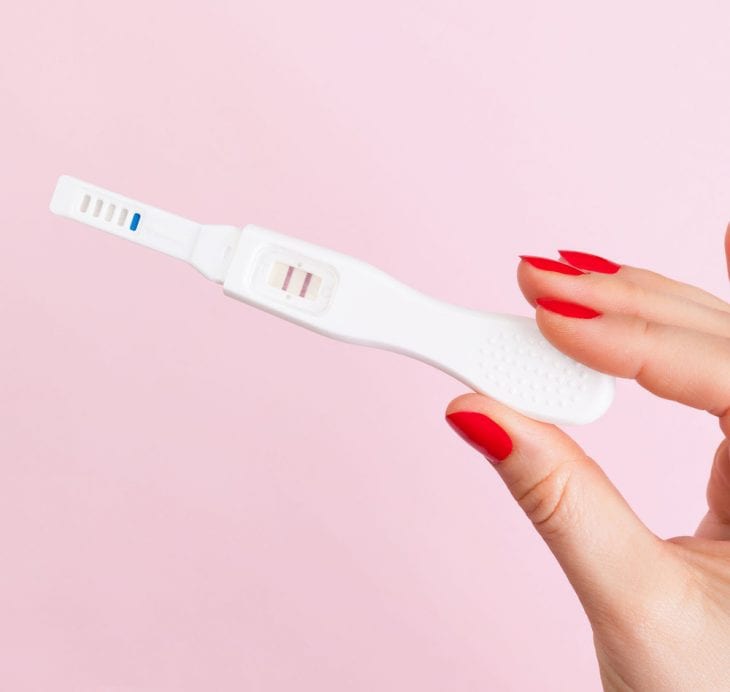Remember that abortion party we told you about? The general reaction to that little shindig was, um, “Appalled!” But, as I’ve never heard of one before, I don’t think it’s an indication of a trend. However, one aspect to the story did inspire another conversation about how much say a man should have in a woman’s decision to keep or terminate a pregnancy.
In the original piece, Byard Duncan describes seeing the pregnant woman’s boyfriend sitting alone during the party.
As it turns out, he had been the object of a lot of vitriol from Maggie’s friends—women who thought that he should not have had anything to do with the abortion. Both he and Maggie had been saddened about this reaction because they had made the decision together…
Maggie, too, looked less than excited. A few days beforehand, one of her friends had asked her to have the abortion in Ohio. When Maggie insisted on bringing her boyfriend along, the friend told her not to bother coming. Maggie was being shown a great deal of respect, certainly. But she told me she couldn’t help but feel as though her pregnancy had been “hijacked” by women who felt like her inclusion of a man in the decision was weak or wrong…
It’s pretty clear to me, based on the writer’s impressions of the situation, that Maggie’s friends are a bunch of judgmental a-holes. I think it’s wonderful that she had such a supportive boyfriend and that they made the decision as a couple. In an ideal world, when faced with a big decision like whether to have an abortion, it would be nice to have the support of not just friends and family, but also your significant other or whatever you consider the person who deposited the sperm in your vagina in the first place. However, what if you don’t have the latter’s support? How much of a say should a man have in the decision to keep or end a pregnancy?

Source: pregnancylancaster.com
Conor Friedersdorf at The Atlantic addresses the matter, first by (and I say this admirably) quoting 2Pac’s “Keep Ya Head Up,” and then arguing that society has communicated two different messages to men about how they should handle an accidental pregnancy.
The woman gets pregnant: “I’m late,” she tells her boyfriend. The man, if he wants to keep the sympathy of the audience, says, “What are we going to do?” The “we” signals his mutual responsibility for the circumstance and investment in the process—and the question mark signifies that he’ll pretty much support whatever she decides. And perhaps that is how things ought to go! But holding it up as an ideal in a flawed world has complicated consequences. A culture that tells men they shouldn’t have any part in decisions about abortion, as portrayed at the “abortion party,” inevitably discourages them from responding to a pregnant girlfriend by asking, “What should we do?” And the notion that at most men should signal mutual investment in the process, and graciously support whatever the woman decides, may sound wonderful to a lot of people, but is it really realistic?
I get where Friedersdorf is coming from, but unfortunately with an issue that is this emotional and varies from situation to situation, and couple to couple, there are never easy answers. I can only offer my own.
For me, choosing to keep or terminate a pregnancy would be a difficult one. I think the experience of having an abortion is difficult for every woman, but the decision to have one comes easier to some. If I got pregnant accidentally through intercourse with a regular partner, I would definitely discuss what to do with them, just as I would likely also discuss the matter with someone close to me, like my mom or a friend. Not because I would be looking for approval, but because it would help to hear their perspectives on all my options.

Source: Lojasalud
But what if I got pregnant as a result of a one-night-stand or a very casual sexual relationship? Would I even tell him, let alone ask for his opinion? Some would say a woman has an obligation to tell the man she is pregnant, but if the decision about what to do is hers and hers alone, what, then, is the point of telling him, especially if she’s not going to take his opinion or desires into consideration? The Frisky’s Jessica Wakeman made a good point, telling me:
“What good is hiding it? It just allows men to think they’re not actually getting women pregnant if they have unsafe sex. Protecting them from it might make the woman’s life easier, but it doesn’t do anyone favors in the long run.”
With all that said, it’s still the woman choice as to whether she keeps or terminates the pregnancy. The man may want her to have the baby so that he can raise it without her, but it’s her body that carries the fetus for nine months, deeply impacting her health, emotional well-being, and life. While sympathetic, I’d advise him to wear a condom and then intentionally impregnate a woman who wants and is ready to be a mother if he wants to have a child.
However, if an accidental pregnancy is kept against the wishes of the man, who would rather the woman terminate the pregnancy, I don’t think he should be expected to be a father, financially or emotionally. With that said, if the couple actively made the decision to continue the pregnancy together, and that decision was based on the emotional and financial abilities of BOTH people, and then the man changes his mind down the road and doesn’t want to be involved? Well, that’s much harder to judge. All I know is, if I were to get pregnant by a man who didn’t want to be my child’s parent, I would have him sign away his parental rights and wouldn’t ask him for a dime.
I don’t think men should be alienated and removed from our discussions about pregnancy and abortion. While they may not get to decide what a woman does with her body (at least individually—on the governmental level, it’s scarily different), their perspective, however different from ours in nature, simply because they cannot get pregnant, give birth, or have an abortion, should still be valued or, at the very least, heard.
Original by Amelia McDonell-Parry
